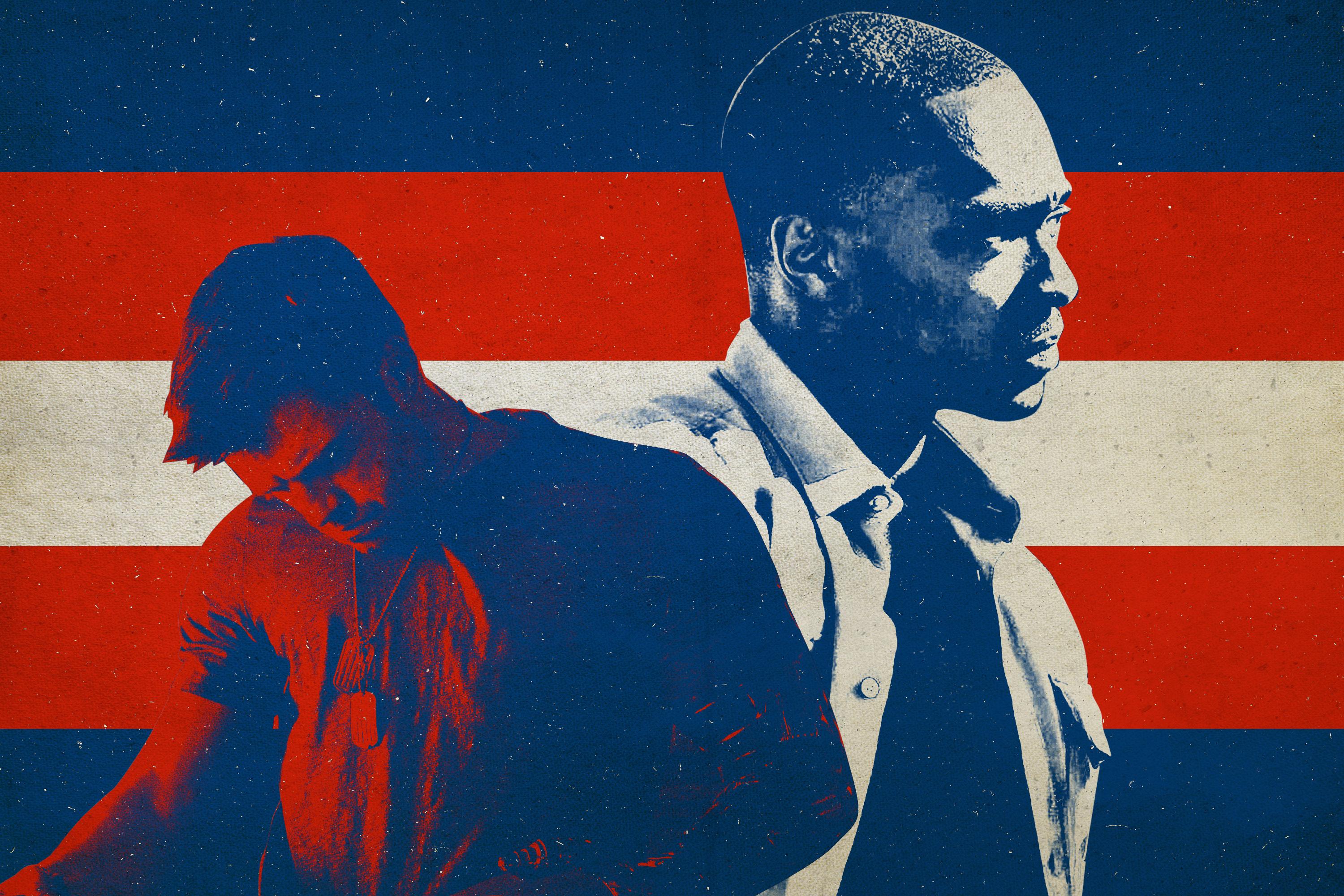
In Spider-Man: Far From Home, Peter Parker’s main concern is a kid in his class named Brad Davis. Stringy and milquetoast Brad Davis returns from the Blip as Abercrombie model Brad Davis, MJ takes notice, and midway through the movie, Peter accidentally calls in a drone strike in an attempt to put an end to his romantic rivalry. Everyone else is dead or in hiding, so Spider-Man is the last public-facing Avenger, but he just wants to go on summer vacation and kiss the girl. It’s as loose and easy as Marvel’s been able to be with the whole “great power, great responsibility” thing, as the subtext becomes text in an enjoyable way: Tony Stark’s giant hater-blockers were an uplink to a global defense system, named E.D.I.T.H., standing for “Even Dead, I’m The Hero.”
A more tedious specter haunts The Falcon and the Winter Soldier. Four episodes in, Karli Morgenthau sits in a cemetery rearranging vials of super soldier serum in her fanny pack, having a too-literal conversation with her second-in-command, Nico. Should she replenish the ranks of the Flag-Smashers with more super soldiers? Should they abandon their mission altogether? They’ve killed innocents—is she doing the right thing? Helpfully, Nico assuages her guilt, and explains Karli’s presence in the show for the viewer: Rather than a symbol for truth, justice, and American exceptionalism, maybe the people of this broken post-Blip world need a Captain America who “looks like them, who understands their pain.” This is the kind of show that thinks that’s a revelation, the kind that forgets that Cap killed people too, and also the kind of show where people say things like that aloud. Finally, we have our last entrant into the Shield Sweepstakes, which were over before Falcon even began.
I had as much fun as anyone seeing Anthony Mackie’s body double do wind sprints and a succession of cool Eddy Gordo flip-catches in Episode 5. But I couldn’t shake the feeling that the entire show was created for that one montage and the subsequent shot of Sam Wilson’s nephew tracing the star on the shield, conveying the requisite (for Phase 4) sense of worthiness and belonging. Feeling the weight of Steve Rogers’s legacy pulling him off-balance at the conclusion of Endgame, Sam says the shield feels like it’s someone else’s. And yet, throughout Falcon it never seems as if anyone else could have realistically taken up the mantle. The characters are just individualized and sympathetic enough to get us to care without distracting from the series’ overall goal: getting Sam Wilson into his Captain America wingsuit.
Even John Walker, the new Department of Defense–issued Cap, is little more than an awkward, flustered middle manager. He’s given a brief moment of humanity in the second episode as he prepares for his coming-out party on a special edition of Good Morning America. He touches the dark navy neoprene of his new uniform and draws his hand back in reverence—how would Captain America say “Good morning, America”? Good morning, America. Too stilted. Good Morning, America! Not enough gravitas. Wyatt Russell is tall and handsome and blond and blue-eyed but just mawkish enough to make Walker’s desperation believable. More than anything he wants to be respected by his costumed peers—by anyone other than his only friend, Lemar Hoskins. This is compelling! Getting his ass handed to him by his enemies, his bosses, and pretty much everyone else he encounters bruises his practically visible sense of entitlement, and though the show builds toward it gradually, his violent explosion at the end of the fourth episode in the wake of Hoskins’s death still comes as a bit of a shock. Possibly because his heel turn happens off-screen (we never see him inject the serum) and coalesces with a series of brief flashbacks, two of the least sexy methods of character development.
With just six episodes in the series, there’s only so much time to give the principals depth or growth. What has changed for Sam and Bucky, really, aside from their comedic timing? The two have settled a bit from the turbo-quipiness of their first few missions together, forming the kind of buddy-cop partnership this series might have benefited from cementing earlier. In contrast to the warehouse scene in Eastern Europe that seemed to exist only for a few jokes about proper stealth and to explicitly set up the idea of the White Wolf, the jokiness on and around the boat in South Louisiana in the penultimate episode is natural, unforced, and welcome. This gives way to one of the best scenes in the show so far, when Sam and Bucky have a heart-to-heart while playing catch, recalling the scene in Avengers: Age of Ultron when Tony Stark and Steve Rogers literally chopped wood while discussing the constitutionality of power. Bucky apologizes to Sam on behalf of their friend Steve, who either didn’t know or just didn’t think about what it meant for a Black man to be handed the shield. Sam, canonically a grief and trauma counselor for war vets, challenges Bucky to offer closure to the people he’s wronged in the past, rather than seeking it from them. “You weren’t amending, you were avenging.”
Since the conclusion of Endgame, each Phase 4 project has dealt with loss, recovery, or filling the void in some way: Iron Man loomed large over Far From Home; the Scarlet Witch abducted an entire New Jersey town to cope with the death of her lover in WandaVision; The Falcon and the Winter Soldier is about the crisis of confidence that attends losing both a friend and a leader in Steve Rogers. Compassion and superhuman patience is what made Captain America Captain America. Not the shield, and not the serum. The MCU is a collection of emotionally addled meta humans at the moment—who else could feasibly lead them into the future but an occupational therapist?